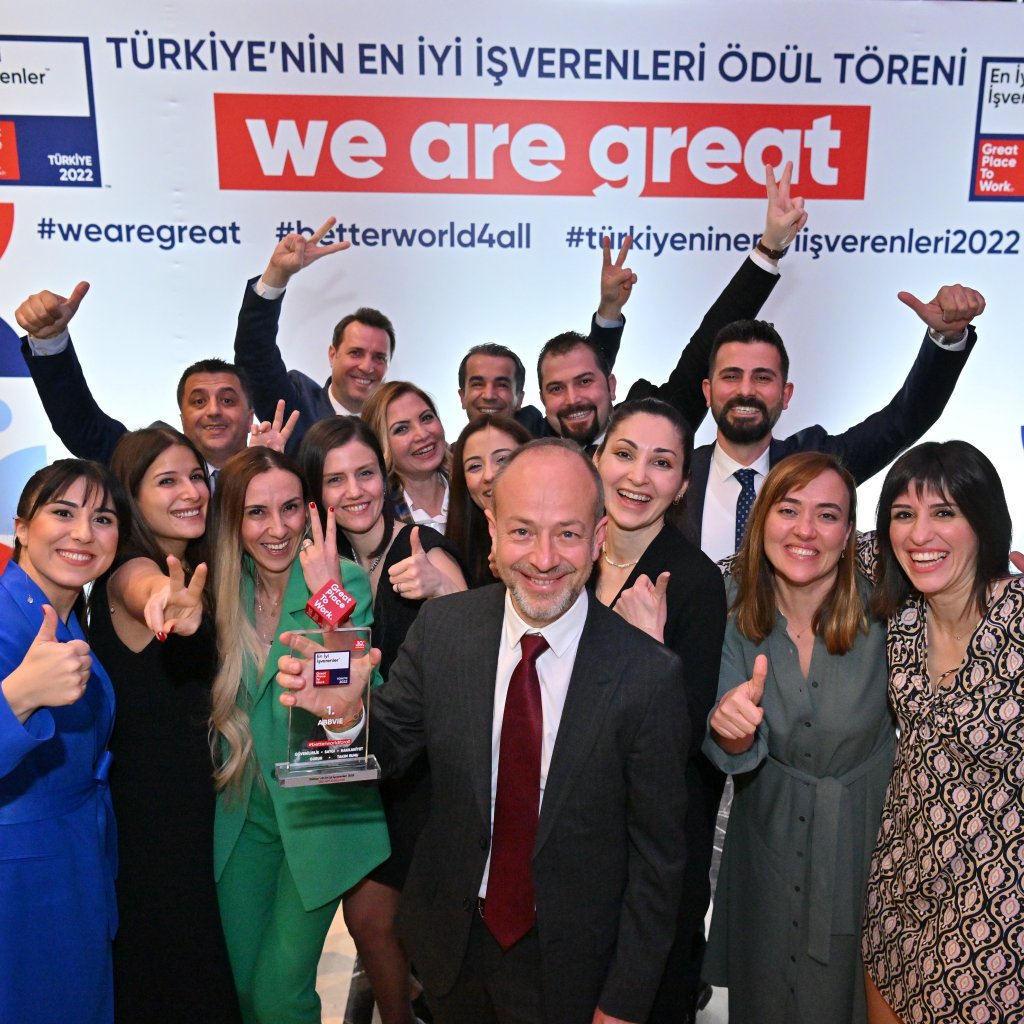AbbVie became a “Migraine Friendly Workplace” within the scope of the project initiated by the European Migraine and Headache Association (EMHA) to identify “migraine-friendly” working environments.
Recognizing workplaces that allow people with migraine to work on an equal basis with other employees, the “Migraine-Friendly Workplace” Project, led by EMHA, helps support an inclusive culture by protecting the health and well-being of employees.
Valuing maintaining an inclusive work culture where employees are supported and respected, AbbVie has taken some important actions to reduce risk factors in the workplace by increasing awareness of migraine, a serious neurological disease. Following the evaluations made by EMHA, the company has implemented programs such as flexibility, remote working, quiet resting/working spaces, easy access to water and natural light, mental and physical health trainings, which it has implemented in order to raise awareness about migraine and support the holistic well-being of its employees. It has earned the right to be “Workplace”. AbbVie aims to provide solutions to the problems caused by migraine and to improve the quality of life of its employees at work with the actions it takes in the company.
Seval Aksoy, HR Director, Turkey & Europe South at AbbVie said, “At AbbVie, we are aware that migraine is not just about physical symptoms, and that people, even their friends and loved ones, struggle with the effects of migraine. These difficulties can arise in the work environment as well as in everyday life. That’s why we at AbbVie aimed to help our colleagues who struggle with migraine with the practices we implemented to improve their lives.”
 It negatively affects work life
It negatively affects work life
The European Migraine and Headache Association (EMHA) estimates that more than 41 million adults in Europe are living with migraine. Nearly one in seven workers struggles with this disease, which has a global economic cost of around 95 billion euros.
Migraine, which is defined as an invisible disease and makes the person unable to work, peaks in the most productive years of individuals’ lives, namely between the ages of 20 and 50. The important effects of migraine in business life can be listed as inability to concentrate on work (52%), absenteeism (32%), not taking patients’ conditions seriously by their colleagues, and lack of understanding (27%). People living with migraine tend to hide their migraines at work because of the negative perception of the disease in society.
Results from the European Labor and Migraine Survey reveal three main concerns of workers across Europe linking their migraines with the hours they work. Accordingly, the variables that affected the participants more were work-induced stress or anxiety (77.65%), screen use (63.87%) and noise (36.25%). Working late, lack of environmentally friendly measures in the office or problems with the ergonomics of their location were among the other problems that the participants stated.

